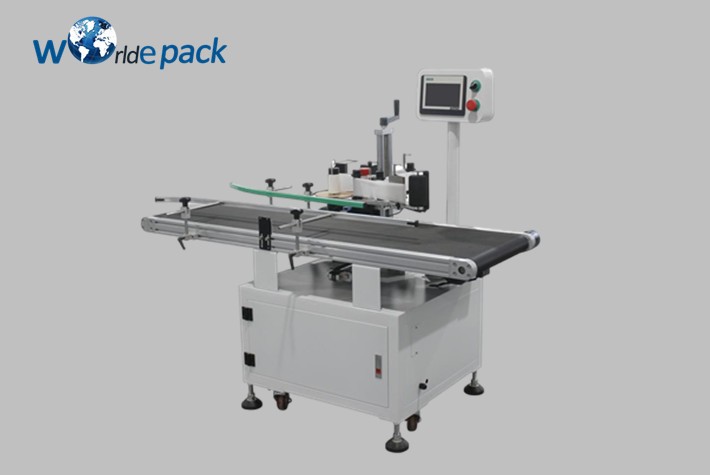Table of Contents
Beneficios de utilizar etiquetas sensibles a la presión en máquinas etiquetadoras
Las máquinas etiquetadoras son herramientas esenciales en diversas industrias para aplicar etiquetas a productos de manera rápida y eficiente. Un método común utilizado por las máquinas etiquetadoras es la aplicación de etiquetas sensibles a la presión. Estas etiquetas se adhieren a las superficies mediante presión y el uso de adhesivos, lo que las convierte en una opción popular para muchos fabricantes.
Uno de los beneficios clave de usar etiquetas sensibles a la presión en máquinas etiquetadoras es su versatilidad. Estas etiquetas se pueden aplicar a una amplia gama de superficies, incluidos vidrio, plástico, metal y papel. Esta flexibilidad las hace ideales para su uso en industrias como la de alimentos y bebidas, farmacéutica y cosmética, donde los productos vienen en diversas formas y tamaños.
Otra ventaja de las etiquetas sensibles a la presión es su facilidad de aplicación. A diferencia de las etiquetas tradicionales que requieren calor o humedad para adherirse a las superficies, las etiquetas sensibles a la presión simplemente necesitan presión para adherirse. Esto hace que el proceso de etiquetado sea más rápido y eficiente, lo que ahorra tiempo y dinero a los fabricantes.
Además de su facilidad de aplicación, las etiquetas sensibles a la presión también son duraderas y duraderas. Los adhesivos utilizados en estas etiquetas están diseñados para soportar diversas condiciones ambientales, como humedad, calor y frío. Esto garantiza que las etiquetas permanezcan intactas y legibles durante todo el ciclo de vida del producto, proporcionando información importante a los consumidores.
Además, las etiquetas sensibles a la presión ofrecen un alto nivel de personalización. Los fabricantes pueden elegir entre una amplia gama de materiales, formas, tamaños y diseños para crear etiquetas que satisfagan sus necesidades específicas. Este nivel de personalización permite a las empresas crear soluciones únicas de marca y embalaje que ayudan a que sus productos se destaquen en los estantes.
Una de las razones clave por las que las etiquetas sensibles a la presión son tan populares en las máquinas etiquetadoras es su rentabilidad. Estas etiquetas suelen ser más asequibles que otros tipos de etiquetas, como las etiquetas de transferencia de calor o las etiquetas en molde. Este ahorro de costos puede acumularse con el tiempo, especialmente para empresas que producen grandes cantidades de productos.
Another benefit of using pressure-sensitive labels in Labeling Machines is their ability to enhance product Safety. These labels can include important information such as ingredients, expiration dates, and usage instructions, helping consumers make informed decisions about the products they purchase. This can help prevent accidents and ensure that products are used correctly.
In conclusion, pressure-sensitive labels offer a wide range of benefits for manufacturers using labeling machines. From their versatility and ease of application to their durability and cost-effectiveness, these labels are an excellent choice for companies looking to streamline their labeling processes. By utilizing pressure and adhesives, labeling machines can apply these labels quickly and efficiently, helping products reach consumers in a timely manner.
How Adhesive Selection Impacts Labeling Machine Performance
Labeling machines are an essential tool in the packaging industry, allowing for efficient and accurate application of labels to products. These machines rely on a combination of pressure and adhesives to ensure that labels are securely attached to the packaging. The selection of adhesives plays a crucial role in the performance of labeling machines, as different adhesives have varying properties that can impact the overall efficiency and effectiveness of the labeling process.

One of the key factors to consider when selecting adhesives for labeling machines is the type of surface to which the labels will be applied. Different surfaces, such as glass, plastic, or metal, require different adhesives to ensure proper adhesion. For example, labels applied to plastic surfaces may require adhesives with a stronger bond to prevent peeling or lifting, while labels applied to glass surfaces may require adhesives that can withstand temperature changes without losing their grip.
In addition to surface type, the Environment in which the labeled products will be stored or used must also be taken into account when selecting adhesives for labeling machines. For products that will be exposed to moisture, heat, or cold temperatures, adhesives with specific properties, such as water resistance or temperature resistance, may be necessary to ensure that the labels remain securely attached. Failure to consider these environmental factors when selecting adhesives can result in labels that do not adhere properly, leading to potential product damage or loss of brand integrity.
Furthermore, the speed and efficiency of labeling machines can be greatly impacted by the type of adhesives used. Some adhesives require longer drying times, which can slow Down the labeling process and reduce overall productivity. On the other hand, quick-drying adhesives can allow for faster application of labels, increasing the output of the labeling machine. It is important to consider the balance between adhesive drying time and the desired labeling speed to ensure optimal machine performance.
Another important consideration when selecting adhesives for labeling machines is the overall cost and sustainability of the adhesives. While some adhesives may be more cost-effective, they may not be as environmentally friendly or sustainable as other options. As the demand for sustainable packaging solutions continues to grow, the use of eco-friendly adhesives in labeling machines has become increasingly important. By choosing adhesives that are both cost-effective and sustainable, companies can reduce their environmental impact while also improving the performance of their labeling machines.
In conclusion, the selection of adhesives plays a critical role in the performance of labeling machines. Factors such as surface type, environmental conditions, drying time, and cost must all be carefully considered when choosing adhesives for labeling machines. By selecting adhesives that are tailored to the specific needs of the products being labeled, companies can ensure that their labeling machines operate efficiently and effectively, ultimately leading to higher productivity and improved product quality.

